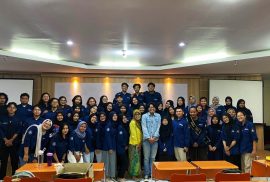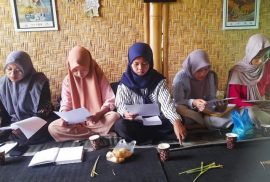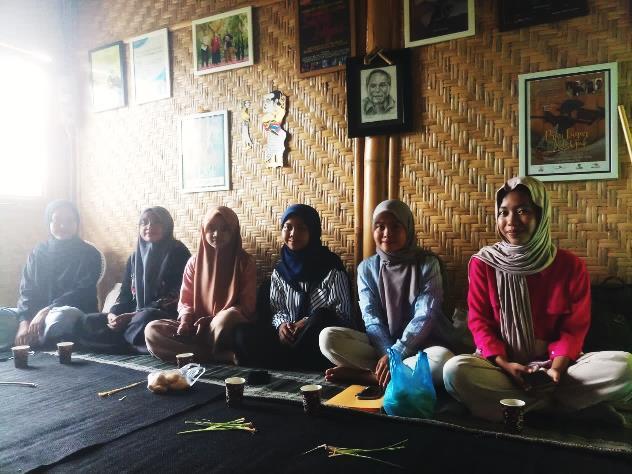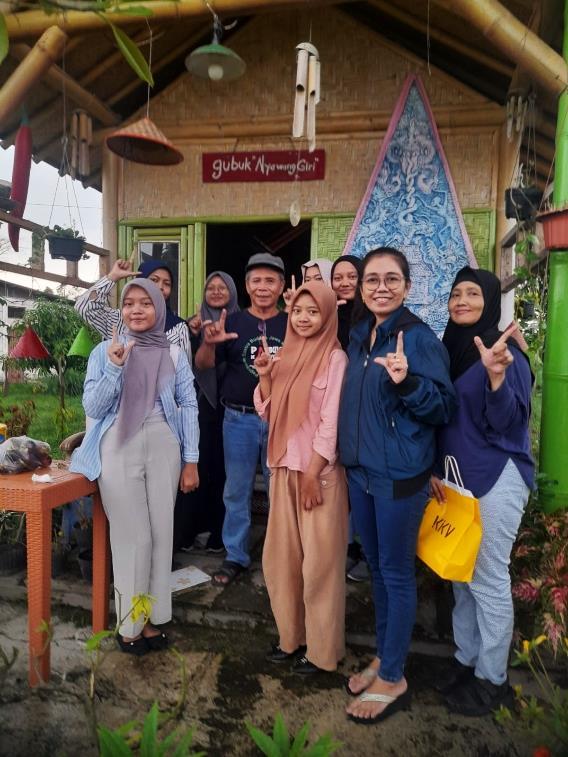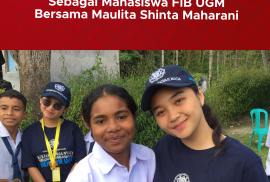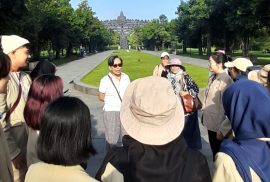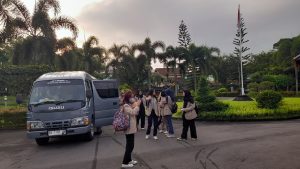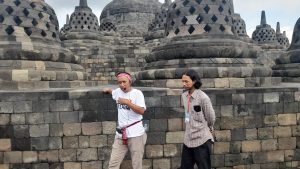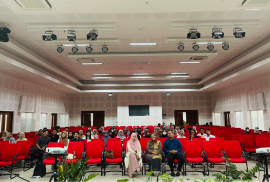Javanese Language, Literature, and Culture Study Program, Faculty of Cultural Sciences, Universitas Gadjah Mada (UGM) held a handover of office (Sertijab) of the Javanese Language, Literature, and Culture Student Association (HMJ Kamastawa) for the 2024/2025 period. The inauguration of the new management took place on Thursday, February 29th 2024, at 04.00–05.00 PM WIB in the Multimedia Room, Margono Building, fourth floor. The event was attended by Dr. Daru Winarti, M. Hum, as the Head of the Javanese Language, Literature, and Culture Study Program, Imam Prakoso, S.S., M.A., as the advisor of HMJ Kamastawa, representatives of the HMJ Kamastawa board for the 2023/2024 period, and the new HMJ Kamastawa board for the 2024/2025 period.
The event began at 04.00 PM WIB with the opening by Bagus Ulin Nuha, a student of the class of 2023, as the announcer. Followed by opening remarks from Dr. Daru Winarti, M.Hum., and Imam Prakoso, S.S., M.A.
Imam Prakoso, S.S., M.A., then read the minutes of the event and continued with the reading of the oath followed by all HMJ Kamastawa administrators for the 2024/2025 period. The inauguration and symbolic pinning of the sign of office to the Chairperson of HMJ Kamastawa 2024/2025 was carried out by Dr. Daru Winarti, M.Hum. Adjit Royan Mustafa Ganda Sukma, Chairman of HMJ Kamastawa for the 2023/2024 period, removed the sign of office and pinned it to Gilang Cahyo Nusantara, Chairman of HMJ Kamastawa for the 2024/2025 period.
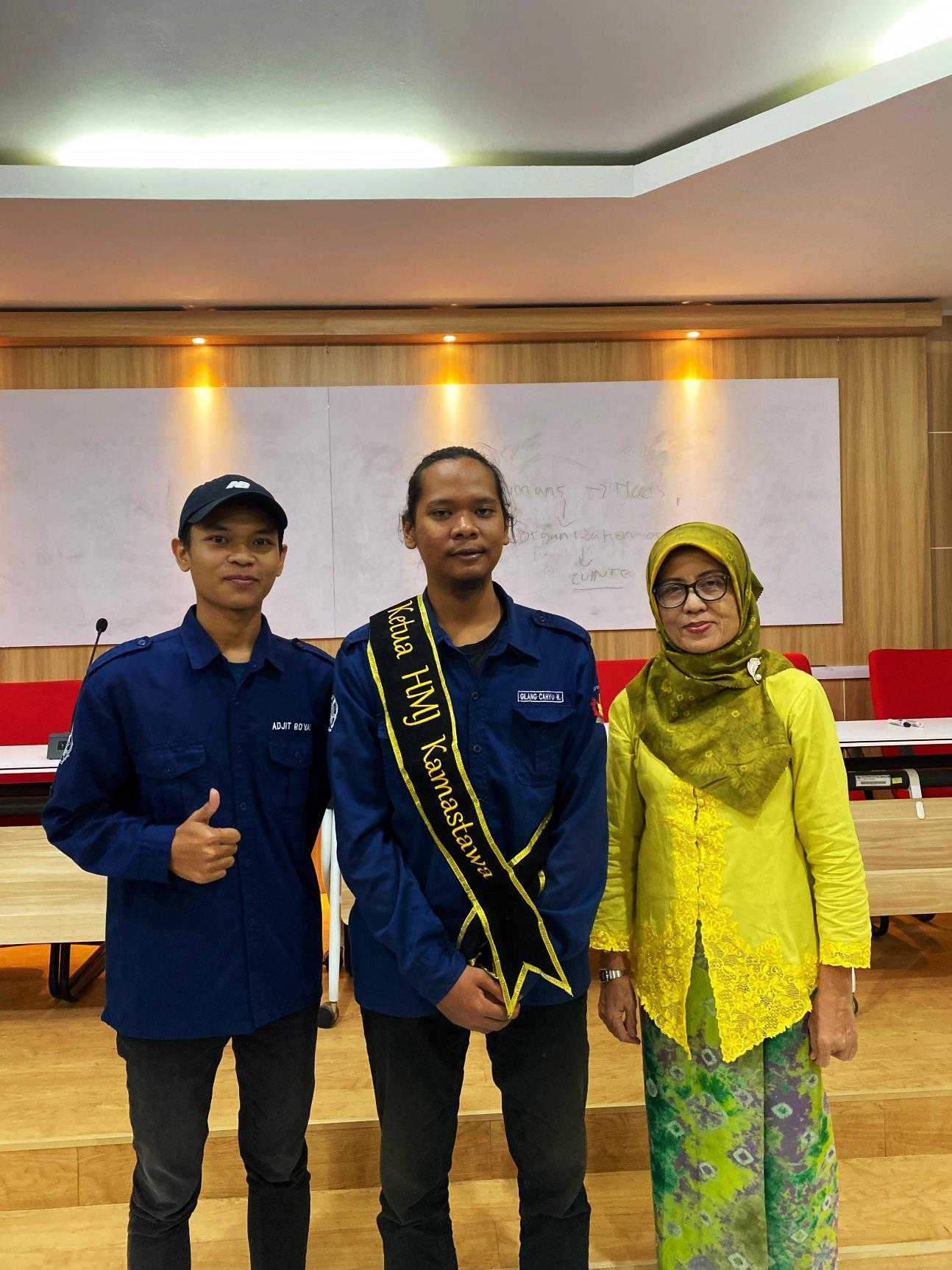
As a moment of farewell and welcome, Adjit Royan Mustafa Ganda Sukma said farewell on behalf of the 2023/2024 HMJ Kamastawa board. Meanwhile, Gilang Cahyo Nusantara gave a speech representing the management of HMJ Kamastawa 2024/2025. The next session was the handover of mementos from Dr. Daru Winarti, M.Hum., to representatives of each division of the HMJ Kamastawa management for the 2022/2023 period. The event was closed with a prayer led by Imam Prakoso, S.S., M.A., before being closed by the MC.
The handover of HMJ Kamastawa for the 2024/2025 period is an important momentum for the new management to continue and improve the quality of the organization. Hopefully, the new management can implement excellent programs in the future, especially the 13th Fall of the Mountain and the XXX Imbasadi Nusantara Cultural Gathering 2024. Thus, it is hoped that HMJ Kamastawa will be able to continue to play an active role, make a positive contribution, and maintain the good reputation of the Javanese Language, Literature, and Culture Study Program. Congratulations and success to the management of HMJ Kamastawa for the 2024/2025 period!

